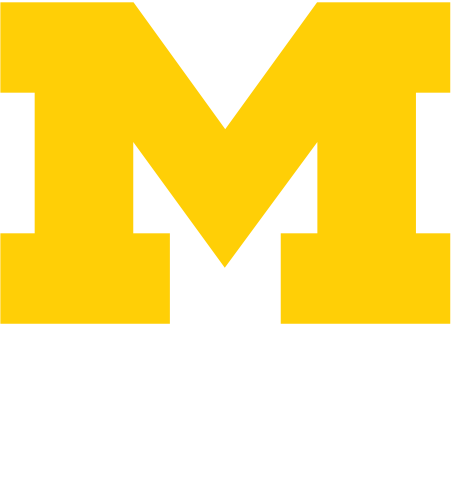Innovation and Equity

For someone as successful as Gyasi Chisley (MHSA, MBA '00), you might think he would spend all his time looking forward, down the road to what's next.
At only 40 years of age, Chisley already has two decades of managing hospital operations under his belt. He was the youngest CEO to date at Methodist Healthcare North in Memphis (within the Methodist LeBonheur Healthcare System) and has just begun a new position in Minnetonka, Minnesota, with UnitedHealthcare as senior vice president of Clinical Integration, Care Transformation, and Strategic Initiatives, where he will lead the development of innovative health programs and services. Before his time in Memphis, Chisley served as president and site administrator for Mercy Health Anderson Hospital in Cincinnati, which was named a Truven top 100 hospital twice during his tenure.
Chisley is deeply committed to transitioning health care from volume to value, and he pushes a platform that includes growing outpatient practices, improving physician-payer relations, and creating viable patient-centered environments.
Turning Back
Despite all the planning and forward thinking that goes into executive leadership, Chisley believes that true success in public health depends on leaders always turning back—looking back in gratitude and going back in service to the communities that helped them succeed.
Chisley credits the SPH faculty not only for forming his academic skills but for encouraging and pushing him to develop his leadership abilities.
"Getting across the stage of the University of Michigan is not the product of me, it's the product of the people around us and the communities that formed us,' says Chisley. When strictly applied, academic curricula, in Chisley's view, can be rigid and fail to foster innovation. What he experienced at SPH was different. He saw faculty blurring the lines between classroom and world and encouraging students to draw on the knowledge, wisdom, and energy of their home communities.
Chisley has modeled much of his approach to hospital management on SPH's community approach. So when he began looking for a specific way to give back, SPH's new Health Equity Leadership Pipeline Collaborative (aka, the Collaborative) became the perfect choice. Launched in January 2017, the Collaborative fosters innovative research to address health disparities and nurtures students as they grow into tomorrow's health care leaders.
Changing the Face of Leadership
The Collaborative developed out of the University's Summer Enrichment Program (UMSEP), an internship program that educates student leaders committed to eliminating racial, ethnic, and socioeconomic health inequalities. For the past 30 years, the UMSEP has brought dozens of undergraduate students from across the country to the Ann Arbor campus to research equity in health care and to collaborate on solutions.
Ebbin Dotson (MHSA '01, UMSEP '98), assistant professor of health management and policy and director of the Collaborative, says that the UMSEP will remain deeply connected with the Collaborative, which provides a formal relationship between UMSEP operations and innovative research on community public health. "The Collaborative,' says Dotson, "is the next ideal step in the evolution of SPH's commitment to changing the face of health care leadership.'
"We want to bring together collaborators passionate about health equity."
When Dotson and Chisley discussed what the Collaborative needed now to succeed, how it could realize its goal of providing both intellectual and physical spaces for addressing health equity concerns, Chisley was most interested in the Collaborative's ability to connect students with external leaders in the field. In February, Chisley gave a gift that helped create the Collaborative's new Innovation Hub, a physical venue in SPH for, as Chisley says, "mobilizing and galvanizing the creative spirit of students from diverse backgrounds on the road to innovation.'
A Place to Innovate
Chisley wants the Hub to be a place where student leaders dream about and then realize ways back into their communities of origin, to serve them and to continue learning from them.
Just a few months ago, the Innovation Hub was an unremarkable room on the third floor of SPH II. Now it looks like a hip work space full of new computers and printers, open desk and table surfaces, lots of light, a fresh interior design, and a large white board already full of ideas.
The Innovation Hub is a space for SPH students, staff, and outside partners to foster the creative work and entrepreneurial spirit that Chisley embodies.
Leaders for Change

Chisley believes that
Chisley is confident that SPH, with its reputation as a magnet for innovative and interdisciplinary excellence, will have a decisive voice in the chorus calling for and enacting health care equity. As some communities brace for actual regression in health care quality, Chisley tells students that wherever they are on their path to becoming public health professionals, they can make a difference now.
Looking back on his own student years at U-M, Chisley credits the SPH faculty not only for forming his academic skills but for encouraging and pushing him to develop his leadership abilities. In discovering his capacity to lead and to inspire others, he gained the confidence to step out as a community leader and eventually as an entrepreneur.
Chisley remains hopeful for the future of public health, "a field that impacts our mental, physical, spiritual, and economic wholeness.' Community health care at its best can be a great equalizer across disparate populations. Chisley plans to continue his push for health care systems that measure, as he says, "not only the transactional but also the transformational.'
A Direct Relationship
Successfully introducing transformational approaches to health equity depends on the kinds of research and initiatives the Collaborative can produce.
Faculty and students at the Collaborative have already designed and rolled out the Leadership Pipeline Project, a study to evaluate the impact of diverse leaders in executive positions within health care organizations. Several upcoming projects—including the Authentic Leadership Project, which partners with the National Association of Health Services Executives—will examine diversity gaps within business management and other organizational leadership.
As Dotson points out, recent studies show a relationship between increasing racial and ethnic diversity in providers, administrators, and degree programs and achieving health equity. He hopes this will mean more direct funding streams for health equity research and greater workforce diversity efforts in health care, both in academia and in the private sector.
As SPH welcomes its first cohort of undergraduate public health majors this fall, Dotson wants to keep the research model simple. "We want to bring together collaborators passionate about health equity. We are excited to be a resource for undergraduates interested in public health and especially happy to welcome undergraduates this fall to learn about health equity related research.'
They might need a second Innovation Hub.


